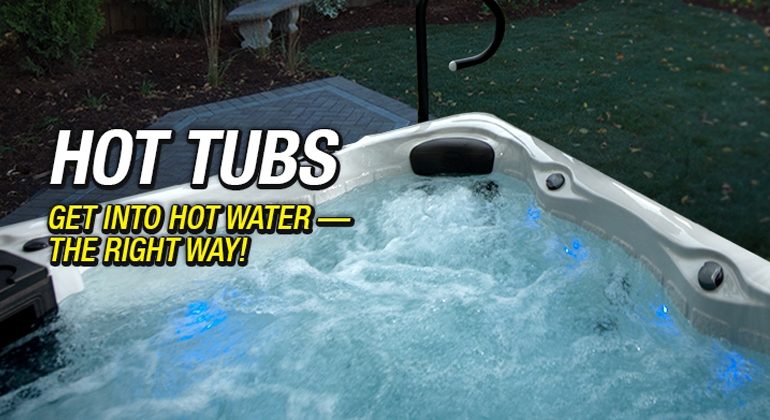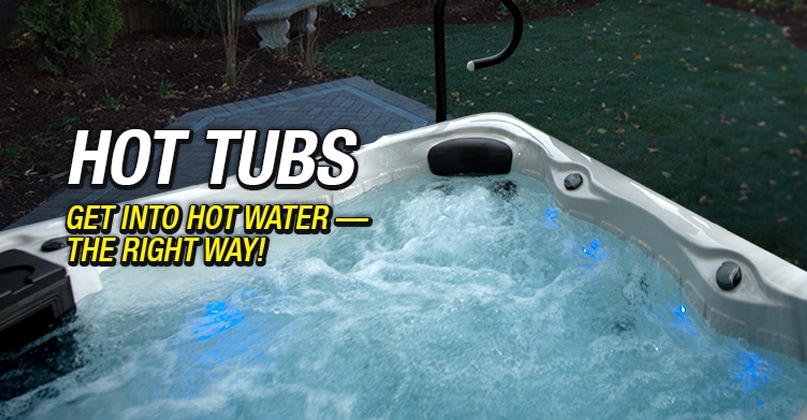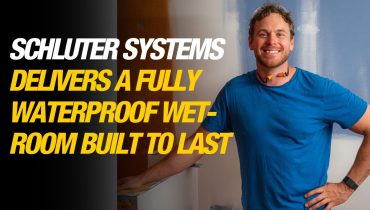I love exploring new technology—especially when it genuinely improves how we work in construction—and I recently came across one that truly impressed me, iGUIDE by Planitar Inc. In my...

Hot Tub Installation
By Mike Holmes
Mike’s Advice / Home Renovation
Friday, July 15th, 2022 @ 1:36pm
What You Need To Know Before Installing A Hot Tub
Having a hot tub is fun, maybe even therapeutic, but it’s a big project. Buying the tub is only the first step, and it’s usually the easiest. Installing one is a whole other ballgame. That’s why for most homeowners, hiring a contractor experienced in hot tub installations is the smartest choice they can make when it comes to getting one. Here is what you need to know to install a hot tub in your home.
Whether you are buying a new hot tub or a used one, you will spend money on its installation and how much that is depends on how much you plan ahead.
Can You Install A Hot Tub Yourself?
I don’t recommend installing a hot tub as a DIY project. There are A LOT of things to consider before getting a hot tub:
- You may need permits
- There must be enough accessible space on your property to safely install and support the hot tub
- Hot tubs must be supported by a proper concrete foundation with stable footings
- You will need a licensed electrical contractor to do some electrical work, as well as a plumber
- You may need to build a new deck or reinforce an existing one
- You may need to hire an engineer or architect to properly design the placement of the hot tub, the structure that will support it, and how it all ties into your home

Permits For Your Hot Tub
Nine times out of ten, adding a hot tub to a backyard or deck requires making structural changes to the home. In most cases, proper permits are required. These changes are based on the province and municipality you live in.
For example, in Ontario hot tubs fall under the “new structure, addition or renovation” category. This means you need to apply for permits and get them approved by a city’s municipality before you start any work. If codes aren’t followed a homeowner risks having to remove the hot tub, making the entire project a waste of time and money.
Electrical Considerations for Hot Tubs
Your home’s No. 1 enemy is water. Not only do hot tubs have water, but they also have hot water, which means a lot of vapour and moisture – an open invitation for mould. It’s too easy for this moisture to get into the structure of your home and cause major problems. Installing a hot tub outdoors protects your home, plus it’s also cheaper.
Extra precaution is required when doing any electrical work close to water to prevent deadly electrical shocks. As a result, any electrical requirements for pools, spas, hot tubs, decorative ponds, and water features should be discussed with a LEC (Licensed Electrical Contractor) business.
Do I need a Concrete Slab for a hot tub?
A hot tub doesn’t actually need to sit on a concrete slab. Hot tubs can be placed on any stable, level surface. You must make sure the surface will not become unstable due to moisture or weight. Those surfaces include wooden decks, paver stones, gravel beds, or spa pads.
Hot tubs are heavy. Add water and people and you’ve got a major load – about 5,000 pounds. Homeowners need to make sure the right structures are in place to properly support this weight. Do you need to build a deck? If you have a deck, is it strong enough? How strong does it have to be? The best way to figure this out is by bringing in the pros.
Can I Install A Hot Tub on a Deck?
Professionals like structural engineers or architects can tell you the load capacity per square foot of a supporting structure, like a deck. They can also make the appropriate designs for reinforcing these structures to ensure they can safely support the proper weight.
It’s important to hire professionals when installing a hot tub on a pre-existing deck. This is important because if the proper structural upgrades aren’t made, there’s a higher chance of the deck collapsing under the weight of a hot tub.
RELATED:
Building An Outdoor Kitchen on A Deck
Electrical Work for Your Hot Tub
You will need a licensed electrician to install and wire a dedicated GFCI (Ground Fault Circuit Interrupter), and it must be dedicated. How far away from the tub it should be installed is determined by which province you live in. In most cases, it’s a minimum of 5 feet but always check provincial codes.
A licensed electrical contractor might also need to trench a PVC conduit from the junction box and install a dedicated 30-50 AMP main breaker box if there isn’t one already. Additionally, they should make sure the shut-off is located outside and close to the tub so that it’s accessible to someone who might need to check it when no one’s home.
You can find a certified electrical contractor here.
Tips for Installing a Hot Tub Outdoors
- Make sure it’s not placed within 10 feet of overhead power lines.
- Plan for proper space around the hot tub to allow access to the equipment panel.
- Always place the hot tub on a solid foundation that supports the tub’s weight, water, and occupants
- To protect your home from potential flooding, keep the hot tub at least 5 feet from any structure.










